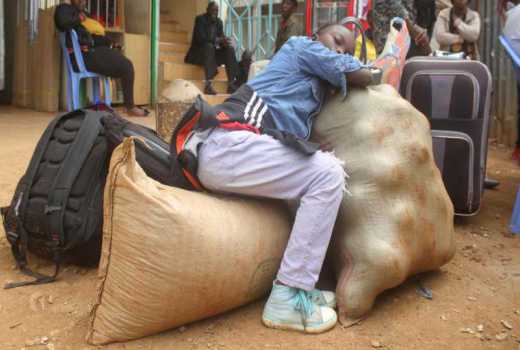×
The Standard e-Paper
Join Thousands Daily

Travellers have recounted harrowing experiences following the night travel ban imposed on public service vehicles.
Several passengers narrated how they spent at least three days travelling from Nairobi to Kakamega following the ban imposed by the National Transport and Safety Authority (NTSA).







